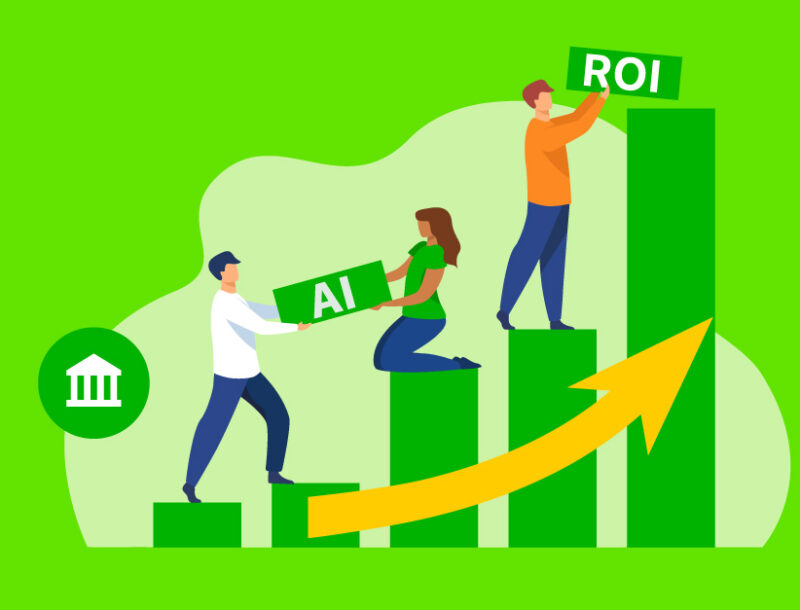Episode 5: UDAAP Compliance Under CFPB Director Chopra Pt. 1

Episode Description:
This COMPLY Podcast is a discussion between Rhonda McGill, Sr. Director of Client Solutions at PerformLine and Tony Alexis, Partner at Goodwin Law and former Assistant Director and Head of the Office of Enforcement at the CFPB, where he developed and managed the CFPB’s enforcement strategy, consumer financial investigations and litigation. During today’s podcast they discuss UDAAP compliance under CFPB Director Chopra, specifically:
- The recision of the CFPB’s guidance on Abusiveness Standard in 2020 and how it impacts organizations today
- The recent update to the UDAAP examination manual to include discrimination under “unfair”
- The recent notable UDAAP enforcement actions
- And the CFPB’s crackdown on repeat offenders and how that ties into UDAAP
Show Notes:
- Top 5 UDAAP Compliance Issues Across Published Content: https://bit.ly/3MVarAg
- 8 Steps to Reduce UDAAP Violations: https://bit.ly/3O2HaW0
- UDAAP Compliance Under CFPB Director Chopra Webinar: https://bit.ly/3N93kEN
- Follow Rhonda: https://www.linkedin.com/in/rhonda-mcgill/
- Follow Tony: https://www.linkedin.com/in/tony-alexis/
Subscribe to COMPLY: The Marketing Compliance Podcast
About COMPLY: The Marketing Compliance Podcast
The state of marketing compliance and regulation is evolving faster than ever, especially for those in the consumer finance space. On the COMPLY podcast, we sit down with the biggest names in marketing, compliance, regulations, and innovation as they share their playbooks to help you take your compliance practice to the next level.
Episode Transcript:
Ashley:
Hello COMPLY podcast listeners. Today’s podcast is a discussion between Ronda McGill, Senior Director of Client Solutions at PerformLine, and Tony Alexis, Partner at Goodwin Law and Former Assistant Director and Head of the Office of Enforcement at the CFPB where he developed and managed the CFPB’s enforcement strategy, consumer financial investigations, and litigation. During today’s podcast, I discussed UDAAP compliance under CFPB Director Chopra, specifically the rescission of the CPFB’s guidance on abusiveness standard in 2020 and how it impacts organizations today, the recent update to the UDAAP examination manual to include discrimination under unfair, the recent notable UDAAP enforcement actions. Again, the CFPB’s cracked down on repeat offenders and how that ties into UDAAP. As always thanks for listening and enjoy the show!
Rhonda:
So back in 2020, the CFPB under Director Kraninger released a policy statement that provided a framework on how the Bureau intended to apply the abusiveness standard under UDAAP, but in 2021, under a new administration, Acting Director, at that time, Uejio, the CFPB soon rescinded that same policy. So what do you think the implications of this are for organizations even a year later under Now Director Rohit Chopra?
Tony:
That’s a good question. You know, going back to 2020, that was so long ago, if you think about it…
Rhonda:
It feels like it…
Tony:
Yeah. You consider what we’ve gone through. When the CFPB issued that guidance, my sense was there was some people who didn’t feel even the guidance provided, but so much you know, my sense is a lot of people were looking for what’s the magic formula that can plug into my risk assessment that can plug into my compliance program and you know, and, and fix something, given the fact that it is now a regulatory violation mm-hmm <affirmative>. And I don’t think that the guidance really got you there. My sense is Dave Uejio probably took the position and, and I, you know, I don’t know if it’s good government or bad government, but he took the possession that he didn’t want to be restrained on a going forward basis for four years to have guidance and guidelines with regard to you know, the abusive standard, and got rid of it.
Tony:
My sense from reading, it was like, I can’t think of anything that was overly objectionable to today, but nevertheless, I think industry itself became somewhat concerned because when you’re building compliance program, you take known risk you know, in addition to unfair and deception is abusive. And you want to have as many parameters in order to help you guide your team and also to provide to the person on the line who is there day-by-day, what are the operational functions that I should be able to keep an eye out to make sure that I’m not behaving or the company’s not behaving in a manner, but a consumer would, would feel was abusive or a regulator feel is abusive. My sense is ultimately it doesn’t really change too much. My sense in the reason why I say this is because it’s an incredibly new standard, you know, it’s, it’s got about a decade of history behind it, even during the Bureau’s most aggressive period or period it’s, you know, abusive was not cited as the regulatory violation, you know, very often, you know, a handful of times.
Tony:
And my sense is you know, like I said, the guidance is helpful, not having the guidance. I’m not too sure is all that risky. Now what that said, the challenges Director Chopra has specifically said in Congress and in speeches and other forums that he wants to build up abusive, authority through litigation. And, you know, as part of that litigation you’ll have opinions from courts. You’ll have opinions from courts of appeals. You’ll have opinions from the regulatory you know, administrative court. And at some particular point there, there will be kind of a, a system or body of knowledge that defines abusiveness in a consumer product environment.
Rhonda:
Hmm. Okay. Thank you. So, in March of this year, the CFPB announced that discrimination is now considered unfair under UDAAP and they updated the examination model to reflect this change. So what do you think of this change and how do you think it’s going to impact the Bureau’s supervisory and enforcement actions moving forward?
Tony:
So, yeah, I mean, so think about, you know, some of the challenges that CFPB probably saw and, and especially, you know, during the pandemic and even not during the pandemic, otherwise the ECOA which is the leading, you know, regulatory tool that you have at the Bureau for discrimination, especially in the fair lending world only applies to credit. And so if you’re not talking about a credit deposit and that’s like a credit card lending, those types of things, then those could run the risk of being a violation of ECOA mm-hmm <affirmative>. But if it’s not credit, say it is a deposit product, or let’s say it’s opening a deposit account at, at, at that particular point ECOA would not apply again because it’s credits. But let’s just say that you got some, you know, incredibly dicey information from the financial institution that showed that they were systemically eliminating people that had, you know, Latino names or in some cases, maybe middle Eastern names or currently right now, as we’re in a war, between Ukraine and Russia, you saw a name that struck you as potential open a deposit account because you wanted to protect your obligations under other aspects of the law and under those circumstances.
Tony:
And, and it turns out that you’re wrong or that your method was over, you know, was too broad, is that discrimination? And the answer is yeah, it could be. But the issue is it’s not for that particular product in what, before Chopra got there or Director Chopra, I got there. It was not part of the regulatory toolkit in which you could address that issue. My sense is that’s what’s going happen or that’s the potential probably up this particular query the issue to me is he started off with the, and its now going to be examiners. And I don’t know if you, when reading it, if you’d also noticed you mentioned AI. So yes, the algorithmic approach which could lead to discrimination, discrimination, and the issue is after the exam manual, you, you’re probably going to have some aspect of your wider portfolio of people that you supervise and people who you enforce against will be socialized to it.
Tony:
And others won’t because it would not have been cautioned by examiners or given advice by examiners or told, you know, what’s permissible and impermissible. And then the issue becomes, if you’re not, then I can see incredible risk for institutions that behave in a way and that in which they withhold or somehow change the parameters in which some products and services are offered you know, in order to meet some particular business need and as a result, they’re treating people differently for what’s really the same product and service. I think some of those companies may find themselves in a risk and in the crosshairs. So I you know, I wonder if there’s gonna be a disparity between what enforcement does and what supervision does.
Rhonda:
Hmm. That is definitely something to look out for. And I guess as things are, as I’m looking at interest rates going up and everyone is kind of at a point of trying to re-restructure and chase the business model to change it, to flow at the times, this is a definite risk opportunity for people to really focus in on
Tony:
Yes, reach out to your experts <laugh>
Rhonda:
For sure, so to your knowledge, are there any recent notable UDAAP enforcement actions that could provide our attendees with some sense of where things are headed? It sounds like definitely AI is one of the topics. But are there other, are there actions that are happening out there that you would want them to really focus in on?
Tony:
So now I have to separate out what I’ve seen and then also, you know, I, I am a lawyer <laugh> so what the CFPB will tell me, but I would, again, still keep my eye on abusiveness. My sense is I’ve heard it now cited far more often than I have in the past. And you know, just between me and the audience under circumstances and what I’m like, why would you cite that particular conduct as abusiveness? That’s a very, very weak claim as opposed to this going with your four strong ones. And my sense is, you know, given the fact that the CFPB has also changed its administrative forum, they made some adjustments and some amendments in their administrative forum. There may be an opportunity for Mr. Chopra to get what he wished for, or, or stated.
Tony:
And that is to have opportunities to litigate abusive claims in the administrative forum, and know if an administrative forum is going to be advantageous for anyone you know in industry or the CFPB. But you know, that’s one thing I’d keep my eye out on. The other thing I would keep my eye out on in the UDAAP space really would be the fact is, you know, because he has not had, but so many matters, but he has filed contested cases, one against a credit reporting agency, which he, at a point, branded a repeated vendor because of the way it had conducted itself in the, no, no that was a payday lender, in which it had repeated itself in some exam activity with MRAs. But in addition with some of the MRAs, it had paid dearly some civil sanctions and some other sanctions with the department of justice, et cetera.
Tony:
And that the label, a repeat offender, the question I have under those circumstances is, was that one of the catalysts that caused the CFPB to file the suit as opposed to consider, I don’t know, it wasn’t my case. So I can’t tell you what type of conditions that, that they imposed or were insisting on imposing that the company did not want to undertake, but nevertheless, there’s now a lawsuit against one company a as I started off with there, there is also a credit reporting agency which also was called you know, kind of fit the recidivous model in the language of the director because it had entered into a consent order with the CFPB a couple years ago. And despite that consent order they found that there was you know, according to the complaint there were allegations that it had repeated itself in terms of some of its misconduct and, you know, boom got the recidivous label. My sense is if I commit deception the first time and I commit fairness, the second time, I will probably be in the eyes of the director, a repeat offender. It doesn’t have to be the exact prong under UDub.
Rhonda:
Do you feel that in that instance, I, and if I’m not mistaken, they’re going up the food train, food chain and even hitting like at the board level or the CEO level and saying, Hey, this is a problem. And you need to, you need to get out of the business too. Do you feel that there’ll be more instances of enforcing folks out that are in that repeat offender column?
Tony:
Yeah. You know, potentially, I think the issue is that Director Chopra, this is not his first time at the Bureau. It’s his second time he learned a lot, the first time he was at the Bureau. My sense is to the extent that you want to address the widest amount of behavior that captures the most people that were either responsible or participated in the conduct, or responsible for making sure that the conduct did not occur, then that person is a related person under the statute. And it’s my sense that he’s more willing to use that particular tool. Note one of the critical issues that industry looks at both depository institution banks, and non-banks has to do “with leveling the planning field.” And that’s one where there will be disparities in the playing field because the CFPB can’t do that against a depository institution that’s written into the statute. But for non-depository institutions, it seems that they might actually be fair game for the CFPB to consider some form of activity, whether it’s an injunction or whether it’s actually, you know, the entire lawsuit that the person may be held responsible.
Ashley:
Thanks for listening to this episode of the COMPLY podcast. We hope you enjoyed the conversation between Rhonda and Tony around UDAAP compliance under CFPB Director Chopra. For additional insights into all things marketing compliance, you can head to performline.com/resources and be sure to check out the links and resources in the show notes. Thanks again for listening and we’ll see you next time!


